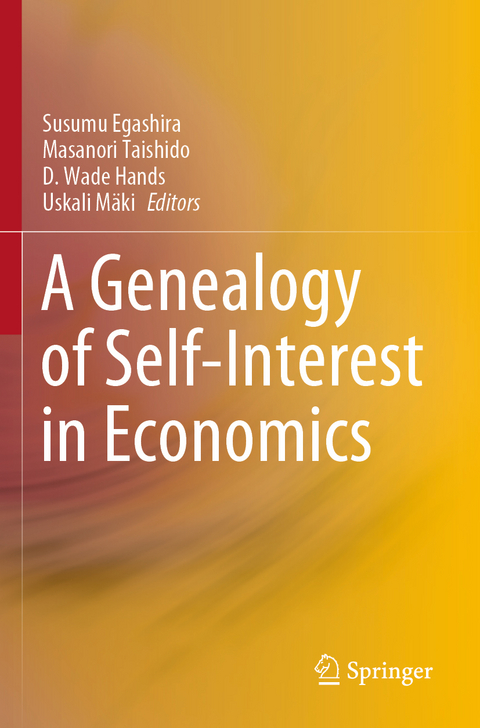
A Genealogy of Self-Interest in Economics
Springer Verlag, Singapore
978-981-15-9397-0 (ISBN)
This is the first book to describe the entire developmental history of the human aspects of economics. The issue of “self-interest” is discussed throughout, from pre-Adam Smith to contemporary neuroeconomics, representing a unique contribution to economics. Though the notion of self-interest has been interpreted in several ways by various schools of economics and economists since Smith first placed it at the heart of the field, this is the first book to focus on this important but overlooked topic.
Traditionally, economic theory has presupposed that the core of human behavior is self-interest. Nevertheless, some economists, e.g. recent behavioral economists, have cast doubt on this “self-interested” explanation. Further, though many economists have agreed on the central role of self-interest in economic behavior, each economist’s positioning of self-interest in economic theory differs to some degree. This book helps to elucidate the position of self-interest in economic theory.
Given its focus, it is a must-read companion, not only on the history of economic thought but also on economic theory. Furthermore, as today’s capitalism is increasingly causing people to wonder just where self-interest lies, it also appeals to general readers.
Susumu Egashira, Department of Economics, Otaru University of Commerce Masanori Taishido, Faculty of Economics, Toyo University Wade Hands, Department of Economics, University of Puget Sound Uskali Mäki, Department of Political and economic Studies, University of Helsinki
Introductuion.- 1. Adam Smith on self-interest.- 2. Jeremy Bentham on self-interest.- 3. John Stuart Mill on self-interest and the assumption of economic theories.- 4. Leon Walras’ idea of human nature and theory of property: free exchange, communism, and association.- 5. Self-interest in Marshall’s economic thinking.- 6. Otto Neurath’s theory of felicitology and socialization: the meaning of physicalism in social sciences.- 7. On the innate selfishness of evaluation in Mises.- 8. Frank Knight on self-interest.- 9. Karl Polanyi’s motive of economy and institution.- 10. Schrödinger’s concept of economy and institution.- 11. Hayek on interest- the finding of rules on Great Society.- 12. Altruism: how economists have dealt with unselfish actions.- 13. Can agent based modeling realize Adam Smith’s perspective?.- 14. Are social preferences just “enlightened” self-interests after all?-Three non-reductivist responses from behavioral economics in practice.- 15. Homo economic us under multiplepressures: Economics, other disciplines, and social reality.
“My overall opinion of this edited volume is positive. The majority of the papers in this book are very interesting and appealing for most historians of economics. There are also papers that will be of interest to economic methodologists and philosophers of economics. Some of the chapters can certainly initiate further research … . In view of the current debate concerning the role of self-interest by economists and other social scientists, this book is a valuable and necessary addition.” (Stavros A. Drakopoulos, Erasmus Journal for Philosophy and Economics, Vol. 16 (1), 2023)
| Erscheinungsdatum | 04.02.2022 |
|---|---|
| Zusatzinfo | 3 Illustrations, color; 15 Illustrations, black and white; VI, 316 p. 18 illus., 3 illus. in color. |
| Verlagsort | Singapore |
| Sprache | englisch |
| Maße | 155 x 235 mm |
| Themenwelt | Geschichte ► Teilgebiete der Geschichte ► Wirtschaftsgeschichte |
| Wirtschaft ► Allgemeines / Lexika | |
| Wirtschaft ► Volkswirtschaftslehre ► Mikroökonomie | |
| Schlagworte | Behavioral Economics • Economics and Philosophy • Economic Thought • Methodology of Economics • Self-Interest and Altruism |
| ISBN-10 | 981-15-9397-3 / 9811593973 |
| ISBN-13 | 978-981-15-9397-0 / 9789811593970 |
| Zustand | Neuware |
| Informationen gemäß Produktsicherheitsverordnung (GPSR) | |
| Haben Sie eine Frage zum Produkt? |
aus dem Bereich


